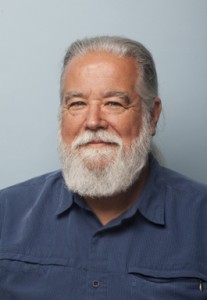Can buying a banana change the world? Michael Besancon from Whole Foods Market answers that it can, and is.
Earlier this year, Michael Besancon, senior global vice president of purchasing, distribution and communications for Whole Foods Market was in the remote countryside in Haiti working with small mango producers. He walked out of a meeting with an NGO that was helping the farmers secure Fair Trade and organic certifications, when he was approached by young man—EARTH University alumnus Pierre-Paul Audate (Haiti, ’10).
 “I’ve told the story of my meeting with Pierre 500 times because it embodies the power of what EARTH is doing. He has done exactly what the mission of the school is: he took his education, went home and put it to work to help small producers in Haiti,” relates Michael.
“I’ve told the story of my meeting with Pierre 500 times because it embodies the power of what EARTH is doing. He has done exactly what the mission of the school is: he took his education, went home and put it to work to help small producers in Haiti,” relates Michael.
The relationship between EARTH and Whole Foods Market began in the late 1990’s when Whole Foods opened its first stores in the Atlanta area. Whole Foods Market donated 5% of their one-day sales in those stores to the Atlanta-based EARTH University Foundation. Then Foundation Board Chair, Jane Black, invited Michael Besancon to EARTH University.
Reflecting on that first visit, Michael comments that, “the campus was really impressive and the students and staff really blew me away. The commitment to sustainability, to entrepreneurship, to environmental and social well-being—it was and is something that I really resonate with.”
Michael saw an opportunity in EARTH’s commercial banana farm to form a long-term partnership with lasting benefits to EARTH and its students.
“This commercial relationship creates an ongoing source of revenue to support the school. More than this, it exposes EARTH to tens of thousands of homes in the U.S., which gives EARTH a platform for involving many people in their mission,” comments Michael.
Today, approximately 85 percent of Whole Foods Market stores carry EARTH bananas, as well as other EARTH University products including fresh pineapple, flowers, frozen bananas and pineapple and co-branded coffee.
“When you are buying an EARTH University banana you are doing something that has a tangible effect on the people where the bananas are being grown,” explains Michael.
Anyelo Moya García (Costa Rica, ’11) is another example of this impact. Until 2008, he had been a field worker on a banana farm in Cariari in the Limón province of Costa Rica. At 23 years of age he decided to go back to school. He applied to EARTH, where he was admitted and given a scholarship.
From his first day of class in January 2008, Anyelo has felt deeply fortunate and comments, “Now my community sees me differently and I have already been able to make a difference.”
 This year, as part of his graduation project Anyelo has been working to help the community of La Florita, a small settlement near the University, achieve carbon neutrality. He and his project partner, Tony Arevalo (Honduras, ’11), are helping the small farmers in this community install and repair bio-digesters, build mini-greenhouses and implement agricultural best practices.
This year, as part of his graduation project Anyelo has been working to help the community of La Florita, a small settlement near the University, achieve carbon neutrality. He and his project partner, Tony Arevalo (Honduras, ’11), are helping the small farmers in this community install and repair bio-digesters, build mini-greenhouses and implement agricultural best practices.
He believes that the project’s methodologies could be successfully replicated throughout the Limón province and intends to present a plan to government agencies to expand the project after graduation.
“Every day of my professional life I will put all of my effort into helping my community. That is the least I can do for the opportunity I have been given,” remarks Anyelo.
View the video from Michael’s trip to Haiti at:
If you would like to know more about EARTH’s admission process, study abroad program or how you can support EARTH’s mission, please click on one of the links below.




